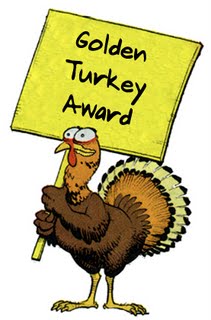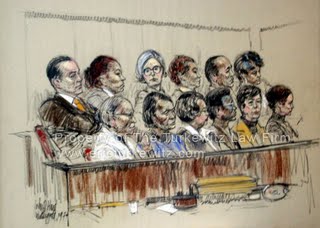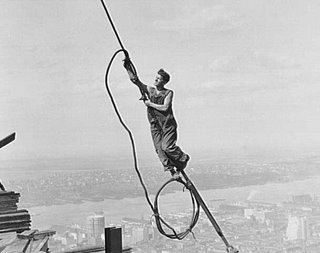
As I wrote two weeks ago, I’m a member of the class of people victimized by Yahoo! click-fraud, and was stunned at being given the shaft in the proposed settlement. You can read the details of said shafting at that link, but it includes over four million dollars for class counsel — the lawyers that represented the class of victims — and virtually nothing for the actual victims. I get zippo in this deal if the judge approves it, which led me to object to the settlement.
When I first wrote, I wondered how class counsel would justify taking the fat fee while the class members got reamed. And I wrote “I look forward to the response to my objection where the attorneys get to state in open court that my interests were protected by giving me nothing.”
Well, now they’ve filed their response to my objections (YahooClassCounselResponse.pdf), as well as the objections of nine other victims. And that response can only be described as moronic. Unless, of course, you prefer the words dopey, dimwitted, inane, pointless, ludicrous, bizarre, and flouting the basic premise of attorney-client relations. Yes, I know that last part isn’t a word, but I’m on a roll and I’ve got a thesaurus. Stay with me here.
In their response, the lawyers counter my objection by saying it was filed by a professional objector, Ted Frank at The Center for Class Action Fairness:
The Turkewitz objection was filed by the “Center for Class Action Fairness” (“Center”), a professional objector to class action settlements. See http://centerforclassactionfairness.blogspot.com/ (blog of the Center for Class Action Fairness discussing three objections it filed in the month of December 2009 alone).
Except that Frank isn’t the objector. I am. Frank is counsel. I really shouldn’t have to explain this concept to anyone who went to law school and now wants four million bucks in legal fees. If their lawyering is that lame (or feeble, faulty or ineffective — I’ve still got that thesaurus out), maybe they deserve zero for a fee.
Let’s be clear about this since class counsel can’t figure it out: I contacted Frank to handle the objection for me. Frank has familiarity with the laws surrounding class action objections. I toyed with the idea of hiring a matrimonial or real estate lawyer to represent me but, oddly enough, chose someone familiar with the field. Go figure.
They attack Frank, of course, because they can’t attack me. I’m a plaintiff’s guy. I think class actions under Rule 23 are a highly effective means of dealing with situations like this, and I said so in my court filing. In addition, I’ve never objected to a class action in my life, despite being involved as a class participant in many. And that appears to be why class counsel tried to shift away from the merits of the argument — that most victims are being shafted — to the lawyer representing me.
In fact, the reply papers are so miserably superficial on this point I don’t know how it made it past the first draft. Was there more than one draft? There are four separate lawyers listed below the signature line. Did any of them read it? Don’t any of these folks know how to edit out awful?
Next up, class counsel disputed my assertion that this suit was about click-fraud. Why bother with another irrelevant and idiotic argument? Likely because they know what they’ve done to the victims and again need to distract.
You see this suit was about pay per click advertising and it was about misrepresentation, and numerous others have, therefore, referred to this as a suit about click-fraud or misrepresentation. (See, for example: Virtual Blight, eBrandz, and Seeking Alpha.) Yahoo! was alleged to have permitted ads to be displayed in spyware, domain name parking sites, pop-ups, pop-unders ad typosquatting sites. Yuck. I get sick just thinking about where Yahoo! wasted my money.
More importantly, Yahoo! has confirmed that I’m a member of the protected class, making this issue moot as well. Even if I asserted that the case was about Crazy Eddie stock, it wouldn’t matter. Because I’m a member of the class and that is what matters. I need not make any showing of individual facts to receive compensation — assuming that I was getting any compensation which, if you’ve been reading you know by now, I’m clearly not.
So class counsel figures, I guess, that if you can’t beat an objector on the merits then you just try to distract the judge. If you got the facts, after all, you argue the facts. And if you got the law, you argue the law. Class counsel has neither, so they shovel manure. Think the judge will notice?
I’ll leave it to Ted Frank to argue the legal merits in a reply and beat the crap out of them further, since they all deserve it.
The issue has been picked up, by the way, by TechDirt and Todd Zywicki @ Volokh (who focuses on Frank, and the reason I chose him).
Links to this post:
Miscellaneous
First, I’m taking suggestions. If there is anything you want me to include or change, email me at thecplrblog@gmail.com. Do not email me with questions. If you want to pay me, that’s a different story. But if there is something that
…
posted by David M. Gottlieb @ January 01, 2010 9:20 PM




